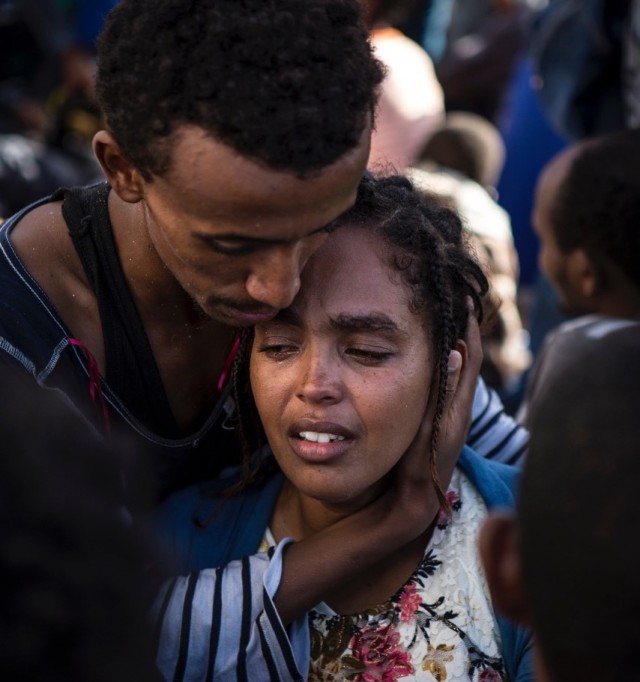TRIPOLI – Reports coming out of the capital of Libya say there have been a violent crackdown on migrants in which thousands were arrested and several shot resulting to hundreds of migrants and refugees seeking sanctuary outside a United Nations centre on Sunday from the escaping dangerous situation. Migrants say they have faced violent abuse and extortion in a country that has had little or no peace for a decade, but has become a central transit point for people seeking to reach Europe in search of economic opportunities.
“We are guilty of nothing except emigrating from our country… but we are treated as criminals and not as refugees,” 25-year old Mohamed Abdullah from Sudan told Reuters. He also said he had been beaten and tortured during detention in five different centres in Libya, and that he and many migrants have nowhere to go for shelter or food.
Reports indicate that armed forces began a series of arrests a week ago. The number of unjustified arrests and detention of vulnerable migrants who were mostly women and children are uncertain but some news organisations put there figure as high as 5,000 people or more. Aid and human rights groups in the capital over the weeks leading up to the crackdown have been voicing out warning that Migrants were being indiscriminately targeted and held in overcrowded detention centres.
U.N. migration agency IOM and Amnesty international condemned, the use of unlawful lethal force leading to the killing of up to six migrants and seriously injuring at least 24 others as a result of overcrowding situation in the detention centres. The situation sparked chaos which also resulted to some migrants fleeing the area in fear of their lives.
According to aid groups and media reports, people waiting on the pavement outside the U.N. centre in Tripoli and sleeping in building in the area were wounded, with bandages on their heads, legs or hands. Some walked only with crutches or the help of friends. They spoke of hunger, desperation and abuse. “I was beaten and humiliated a lot in prison. Many were beaten and tortured,” said Matar Ahmed Ismail, 27, from Sudan.
The Libya’s Government of National Unity said it was “dealing with a complex issue in the illegal migration file, as it represents a human tragedy in addition to the social, political and legal consequences locally and internationally”.
The U.N. refugee agency UNHCR said it was trying to help people waiting at the centre and urged crowds there to disperse so it could assist the most vulnerable. It added it was ready to assist with humanitarian flights out of Libya.
Migrants killings in Libya provoke fear, angry and calls for serious humanitarian assistance and protection






